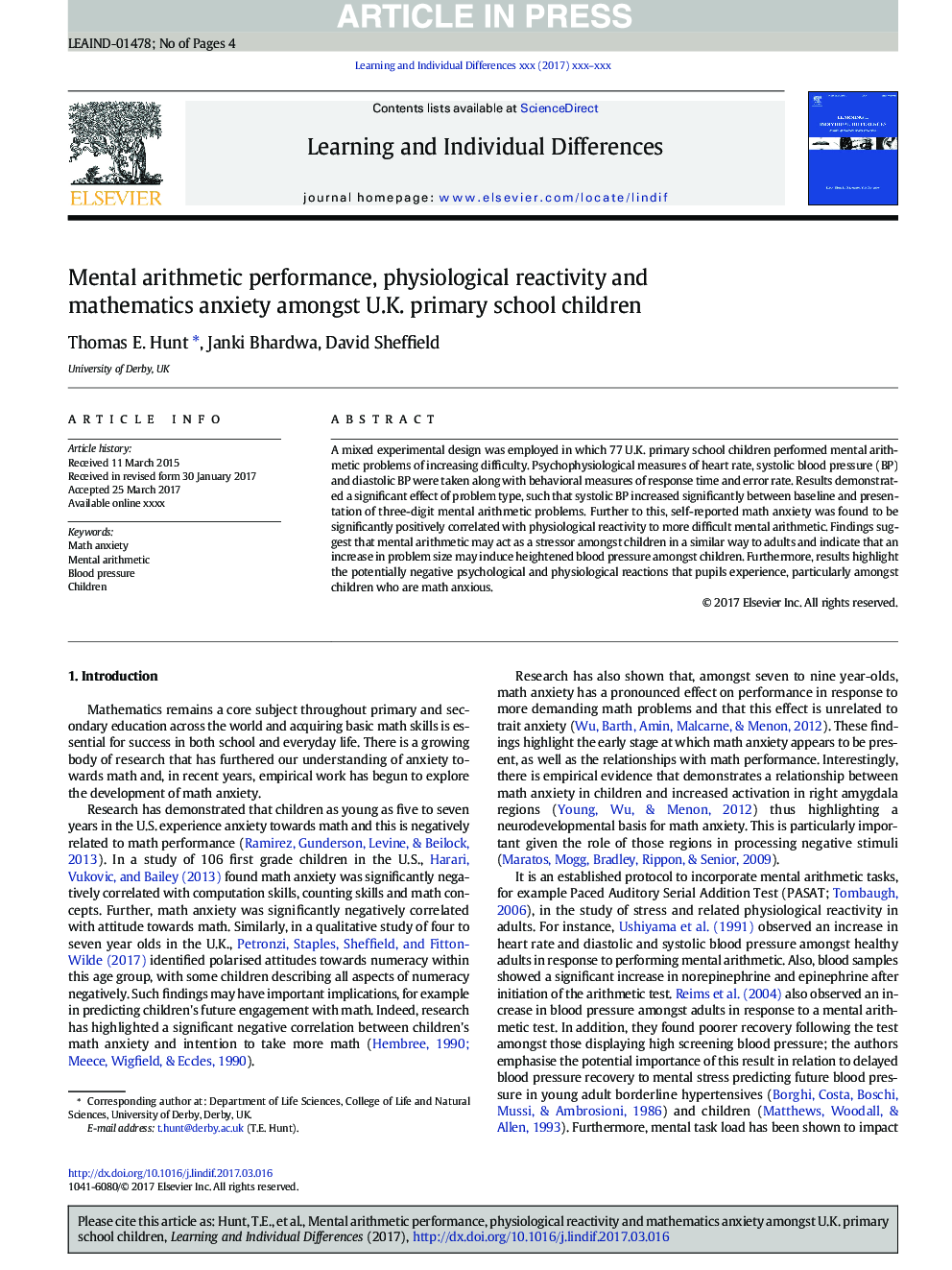| Article ID | Journal | Published Year | Pages | File Type |
|---|---|---|---|---|
| 4940008 | Learning and Individual Differences | 2017 | 4 Pages |
Abstract
A mixed experimental design was employed in which 77Â U.K. primary school children performed mental arithmetic problems of increasing difficulty. Psychophysiological measures of heart rate, systolic blood pressure (BP) and diastolic BP were taken along with behavioral measures of response time and error rate. Results demonstrated a significant effect of problem type, such that systolic BP increased significantly between baseline and presentation of three-digit mental arithmetic problems. Further to this, self-reported math anxiety was found to be significantly positively correlated with physiological reactivity to more difficult mental arithmetic. Findings suggest that mental arithmetic may act as a stressor amongst children in a similar way to adults and indicate that an increase in problem size may induce heightened blood pressure amongst children. Furthermore, results highlight the potentially negative psychological and physiological reactions that pupils experience, particularly amongst children who are math anxious.
Related Topics
Social Sciences and Humanities
Psychology
Developmental and Educational Psychology
Authors
Thomas E. Hunt, Janki Bhardwa, David Sheffield,
